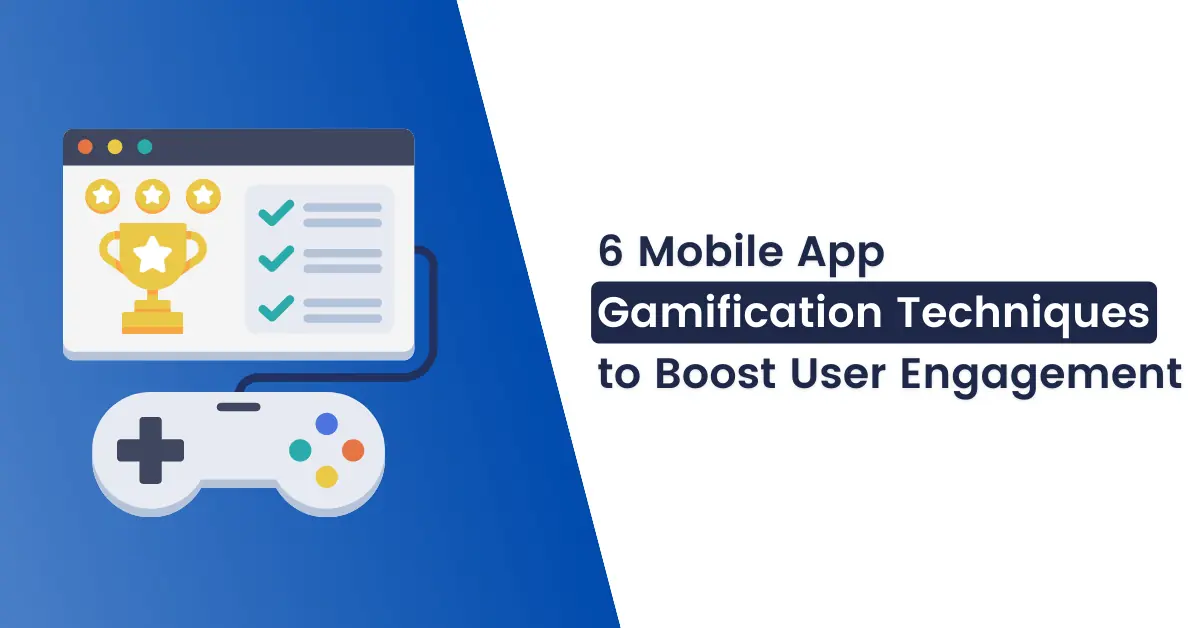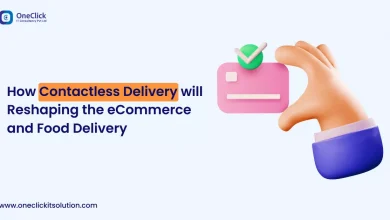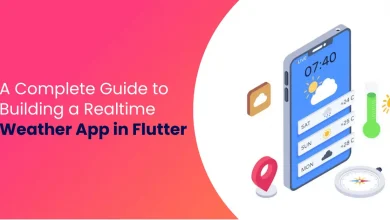6 Mobile App Gamification Techniques to Boost User Engagement

Introduction
In the field of the web and mobile applications, gamification consists of exploiting mechanisms from the gaming world in other areas, such as applications or websites. It aims to capture the user’s attention in a rewards process that makes them want to continue and come back to it regularly. The game and its emotional devices (excitement, frustration, happiness, etc.) give a positive image of the brand and engage the user in a strong relationship with it.
This is why most companies are using gamification in mobile apps to prevent users from uninstalling their apps.
Gamification: Offering a Different Digital Experience
Gamification consists in establishing a dynamic of play, in a field which is generally devoid of it. It is a way of making an activity that is not attractive by definition, thanks to a concept based on the human predisposition to play. Concretely, this translates into offering entertainment to buy a product, complete a questionnaire, watch an advertisement or assimilate information.

The game, which can take the form of a video game, a serious game, a competition or even a social game, thus boosts your brand image and builds loyalty among your consumers, with the aim of transforming them into prescribers. By offering them an original and motivating digital experience, you will inevitably create commitment and encourage them to spread the word or refer to friends.
In addition, gamification is a digital strategy that promotes the acquisition of prospects. The game always attracts opportunists who will come and try their luck or just have fun. However, these individuals can become customers if you provide them with an addictive interaction. The more they come back to your site or your pages on social networks, the more they will be encouraged to consume.
What is Gamification?
Like any concept that is suddenly popular, gamification is sometimes subject to uncertainties as to its real meaning or to misconceptions that prove to be inaccurate.
Gamification consists of transposing elements that are traditionally found in the world of games (such as the spirit of competition, respect for rules, the attribution of points and rewards) to other areas to make a game playful process and thus encourage action, encourage participation or commitment, or accelerate problem-solving.
Very present in the educational sphere, this approach has proven its worth with young children, but its extension to other areas has accelerated in recent years, particularly in the business world. Gamification Market Surges, Projected to Exceed $10 Billion by the End of 2024.
The implementation of a game responds to the conscious or unconscious desires of your subscribers:
- The reward
- The competition
- Comparison to others
- Fulfilment
Gamification allows you to renew the user experience and increase the performance of your loyalty campaigns. In addition, if you add a reward at the end of the game, you can engage an additional lever in the acquisition of brand visibility. The consumer-player will find it easier to share your message with their friends if they receive something in return.
Gamification thus supports multiple marketing objectives:
- Customer loyalty
- Acquiring new customers
- Strengthening commitment
- The transformation of consumers into ambassadors
- Improving the image and reputation of the company
Gamification is a long-term strategy that must be regularly renewed and refined, depending on customer expectations. It is by creating addiction thanks to an innovative concept that the company will increase the commitment of its community and act on loyalty. This new digital marketing strategy seems to have a bright future, if it remains used as part of continuous innovation.
Top Mobile App Gamification Techniques
1. Set clear goals
It is essential to design clear objectives, the user must be able to understand the goals of the game easily. It is, therefore, important to ask yourself the right questions about the ins and outs of your mobile app gamification project and to share them with your user.
First of all, you must qualify the mechanisms you want to put in place to meet your objectives, for example: retain your users and acquire new ones. It is, therefore, essential to consolidate them before designing the courses.
Then you will have to study the added value you want to bring and how you want to stand out from your competitors. Remember that your users want to have an intense experience by surpassing themselves or by cultivating themselves.
2. Knowledge of the Different Types of Players
The goal of gamification is to get new users to engage with your solution. This requires knowing the user profiles in order to lure them and make them ambassadors. Bartle’s typology, created in 1996, divides players into 4 main categories.
The killers who, as their name suggests, seek to triumph over others. They don’t want to win but to beat. The establishment of rankings and dueling systems are mechanics that strongly affect them.
The socializers are motivated by the interaction with the community. The presence of systems of friend lists, groups, chats, and forums are a great source of engagement with them.
The achievers apply themselves above all to completing the fixed quests, they are collectors. Devices with badges and daily goals are very effective on them.
The explorers like outside the box and explore the nooks and crannies of a game. They are particularly sensitive to novelty and updates.
3. Consider Offering Rewards for Each Step Taken
The use of rewards creates attraction but is also an effective way to indicate to the user his progress and perseverance. Rewards are a measure of experience, they can take the form of points, medals, virtual badges, trophies, gifts, or virtual currency.
They make it possible to follow the evolution of the player by bringing the challenge to him. They can be imagined as levels and/or rankings thus giving rhythm to the game and allowing players to compare themselves. You can also add spice, via exceptional or random rewards to spark their curiosity and interest in the game.
4. Curiosity through Challenges
To whet the curiosity of your users, you can also set up challenges to boost them and encourage them to explore your game further. To design your challenges, you can create difficulty levels to arouse the thirst for victory, they will also be used. to give an order in the quest of your users.
5. Don’t Forget to Offer a Dashboard
The dashboard is essential in your mobile app gamification journey. It plays a major role, your user will find his profile there, the progression of his player status, his ranking and will also be able to access his rewards. The user must have quick access to it and to the other functionalities which result from it. He will thus be able to compare himself, share and follow his evolution.
6. Consider Implementing an Engagement Loop
The engagement loop helps to capture your user’s attention for as long as possible giving them a sense of satisfaction. It is made up of three elements:
1. Motivation:
Motivation represents the trigger; it is the reason that will push your user to be interested in your proposal. It can take many forms, onboarding, a notification, a teaser, an ad, a newsletter, etc.
2. Action
You must be clear about the action you want to cause in your user and his role in the journey.
3. Feedback
The sequence of causes and effects, therefore, forms a loop known as a “feedback loop”. It’s about informing your user of the value of their action. The feedback must be immediate and directly linked to the action. It must be clear to inspire your user to continue their action, improve and stay motivated in their quest.

Conclusion
The use of different mechanisms and techniques in mobile app gamification will engage your users to use your solution and become ambassadors. However, user testing during and after design will allow you to be sure that the functionality you implement is understood and appreciated by your end users.
Are you looking to add gamification to your current mobile app development project? Or are you launching a new website and want to engage more users and build loyalty? Connect with us to leverage the benefits of gamification in your mobile apps.





